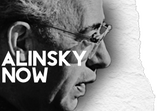|
IAF will integrate economic initiatives that address inequality and wage paralysis while challenging market fundamentalism. This will include renewed overtures to and alliances with labor organizations, educational institutions, and social service agencies that share common interests. Market fundamentalists will squeal.
IAF organizations will localize climate change in actionable ways modeled after “Do Not Stand Idly By” - Metro IAF’s campaign against gun violence. Local initiatives will be driven by extreme weather events in multiple locales along with the growing awareness of economic benefits of alternative energy sources. “Do Not Stand Idly By” will gain visibility, power and impact as communities continue to struggle with gun violence and search for a viable response. IAF relational habits and practices will prove out as institution builders in diverse congregations, unions and associations whose concern for their own strength will grow along with expectations that IAF can help. Ground up relational work will break open inventive responses to immigration integration, public housing accountability, Medicaid expansion, elder care, education and children/youth. IAF communications technology will incrementally improve as a vehicle for enhancing face to face organizing methods. Cooperative experiments among member institutions will grow in diverse fields including energy, health care and job training. Initiatives pioneered by Common Ground, VOICE and COPS/Metro will fuel this expansion. IAF will further embrace an international perspective placing high value on work in the United Kingdom, Germany, Australia and Canada. IAF universals will be tested in new contexts and frameworks inside growing organizations delivering big wins and demonstrable impacts. IAF Northwest will break open fresh organizational opportunities that cross national boundaries. IAF organizational practices will repeatedly demonstrate the capacity to overcome racial/ethnic and religious divisions where polarization undermines the common good. ————————-- Reprinted from The Pierson Letter, No 2. The views expressed here are not endorsed by the Industrial Areas Foundation or any IAF affiliated organization.
0 Comments
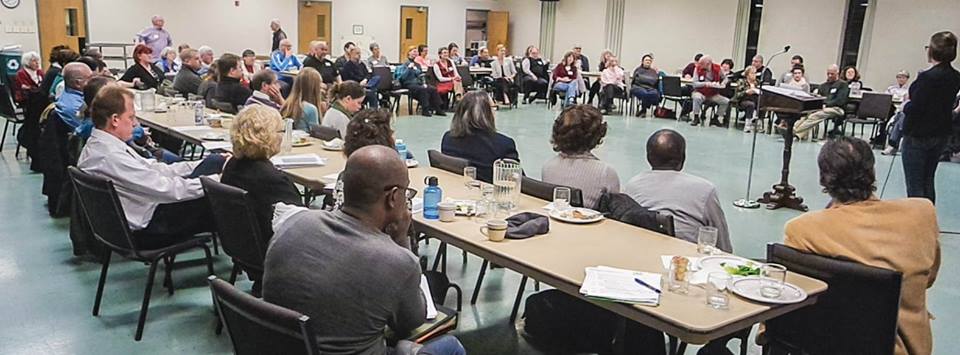
IAF organizations investigate power relationships in order to fight for recognition and strategic advantage.
Laying the foundation for a broad based, citizens organization by examining power relationships dating back to the labor struggles of the early 20th century is counter intuitive. But that’s exactly the work begun on Dec 2, 2014 at First Plymouth Congregational Church, Denver, CO with over 80 leaders from congregations, schools, unions, and non profits present. Thomas Andrews, author of the brilliant history Killing for Coal, served as guest speaker helping identify the power political consequences of a state economy anchored in extractive industries, especially coal, and co-related commercial ventures, especially railroads, power generation and steel production. This same disposition to unearth how power relationships impact everyday life figures prominently in all IAF organizing drives. Careful power analysis is a craft learned over time, refined through action and relied upon to accurately target the levers of power. The exemplars cited in IAF Strengths Part 3 are grounded in the performance of rigorous power analyses. In the Colorado instance, power patterns of business as usual, largely inherited from the industrial past, tend to overwhelm current change strategies. Colorado IAF seeks to build sufficient emergent new power to disorganize existing relationships on the way to reorganizing for transformative action in areas of vital concern to individuals, families and the institutions that serve them. 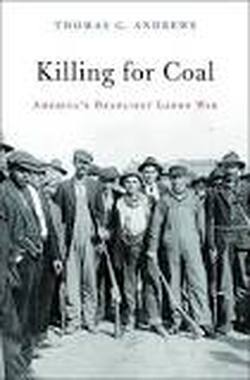
In the spring of 1914, members of the Colorado National Guard machine-gunned and set fire to tents in Ludlow, Colorado, where striking miners were living with their families. Five miners, two miners’ wives, and twelve children died, most of them by suffocation while hiding in a cellar under... Read review in the New Yorker here.
Gene Demby in Politico Magazine (here) touts the birth of a new civil rights movement. It’s for real, he says, this social justice thing that happened in 2014. He predicts it could be even more dramatic in 2015.
He doubts not that “…a loose but increasingly coordinated network of millennial activists” is networked up. “…you’d be hard pressed to find a better megaphone than Twitter,” he says. They have a broad agenda and a serious generational rift going for them. Rallies and speeches are out along with male dominated charismatic leaders. Fannie Lou Hamer/Ella Baker style participatory democracy is in. Or so a professor of social movements informed him. These Hamer/Baker inspired grassroots leaders actually made it to the White House. Inside, outside. It’s happening. “As it goes with all histories, the catalyzing moment in this social-justice revolution is hard to pin down”, Demby proclaims. --------------- Here’s the big fly in Mr. Demby’s code switch revolutionary ointment. No movement is likely to be built by polarizing off law enforcement. Not that there isn’t good cause from time to time. Brutal, inappropriate and even murderous behavior from time to time. Deaths of innocents even. But change is not going to be delivered by Twitter and, I suspect, no one would have nailed this faster than Fannie Lou Hamer and Ella Baker. In the real world, polarizing off law enforcement benefits three players: attention seekers (amateur or professionals like Sharpton), media (streaming compelling images that drive market share), and opportunist practitioners of backlash politics (in defense of law enforcement). Millenial sensibilities notwithstanding, these interests predominate. Perhaps more important, the vast majority of residents, whether poor or middle class, want law enforcement to successfully combat crime. This determinative reality undercuts “movement building” targeting officers of the law. Real, careful on the ground organizing - agitating, listening, learning, educating, challenging, negotiating, compromising and holding accountable - is what alters systemic relationships and delivers change. There is no alternative to this hard, risky, disciplined work. Frank C. Pierson, Jr |
Frank C. Pierson, Jr.Frank Pierson retired after forty years of work with the Industrial Areas Foundation (IAF) as a professional organizer. He began his career in 1971 in Chicago, moved to Queens, New York City and migrated west to work in Arizona, New Mexico, Nevada and Colorado. He resides with his wife, Mary Ellen Kazda, in Oracle, Arizona. He may be reached at alinskynow@gmail.com Archives
June 2018
|

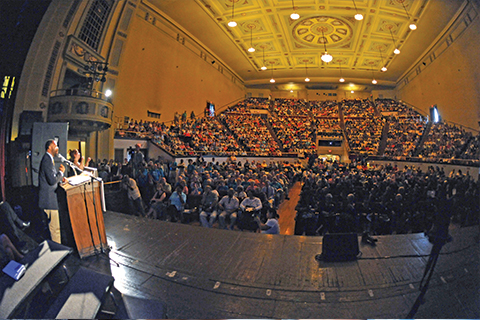
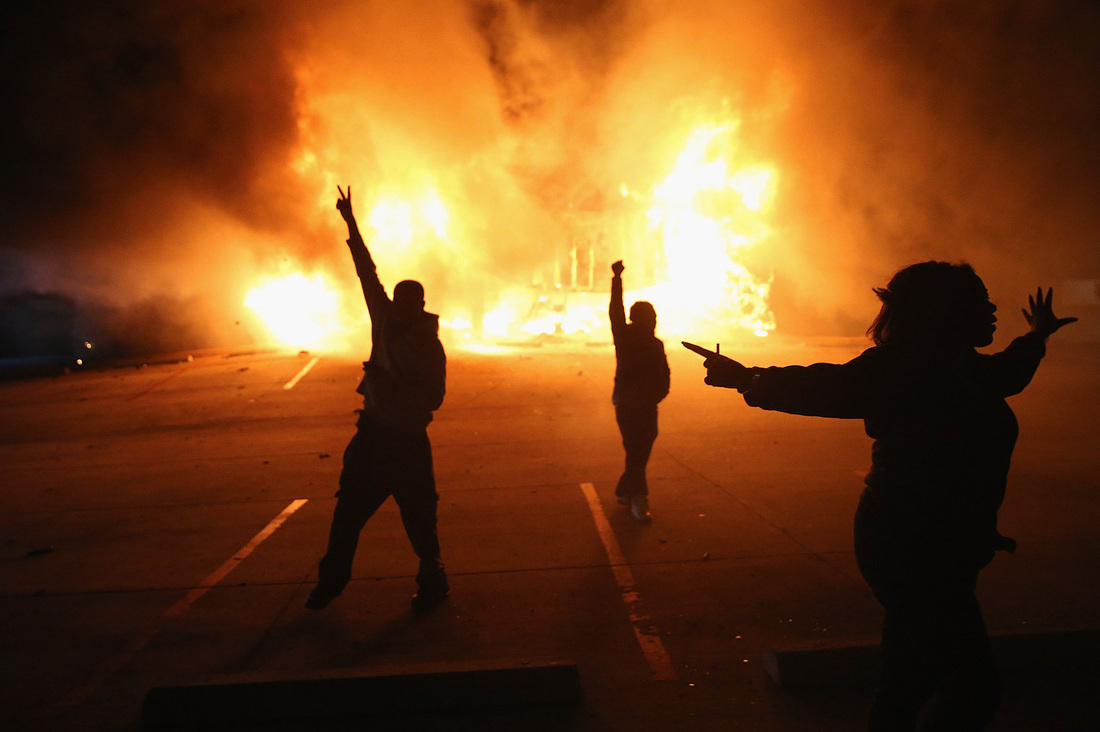
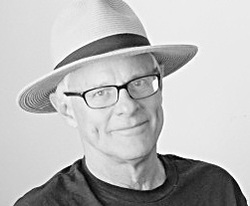
 RSS Feed
RSS Feed
